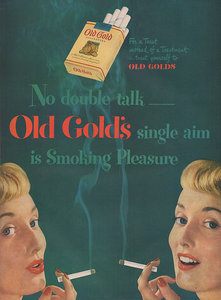Nearly all stop smoking methods will tell you to pick a date in the near future when you intend to quit. This is a bad idea. Here’s why:
First, it reinforces the widely held but mistaken notion that stopping smoking is terribly difficult. You have to prepare yourself for it, as if you’re going to take an exam or the driving test, and work up your willpower for the big day. It’s even been said that quitting smoking is like going into battle!
Second, it plays along with smokers’ often unrecognised attitude that they don’t really want to quit. If smokers are advised to set a quit date, it means they can carry on smoking, at least for a while: a week, ten days, a month – or longer. And what then? They may well find that it’s not the right time or they’re not yet ready to quit, so they put off the fateful day. The fact is that most smokers will never be ready to quit – that’s why they smoke!
Setting a quit date also encourages the idea that smoking is wonderful, or at least has some redeeming features such as that it’s enjoyable or relieves stress. Thus, smokers can continue for a little longer to enjoy these imagined benefits, thereby reinforcing their inherent reluctance to quit and implying they will suffer a sense of loss when at last they ‘give up’ smoking, if they do. And what’s going to be different ten days or a month hence?
Suppose you put off quitting for two weeks. If you succeed then, if you’re a pack-a-day smoker, you’ll have poisoned yourself by smoking an additional 280 cigarettes. This won’t do your health any good.
With this approach to quitting, you’ll likely be fretting over the looming quit day, regretting the sacrifice you’re reluctantly planning to make, and then be struggling with the hindrance of nicotine gum or patches or prescription drugs to deal with the awful withdrawal symptoms!
As a smoker, your need is to stop right now. The good news is that with the help of the Symonds Method this is easy to do – without nicotine, drugs, hypnosis, or gimmicks.
Text © Gabriel Symonds


Leave A Comment